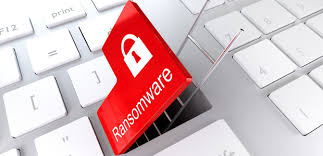Just think about a situation where you are stuck from working
on your computer or laptop as your screen greets with a message saying your
computer is locked.
What will you do if they ask to pay for getting your data
back with your computer?
With the increase in technology development, ransomware is
an increasing scenario these days.
The ransomware locks up your screens, confiscates your
computer hostage by jamming your right to use the operating system.
When you turn on the system, all you can see is a flashing ransom
message affirming to be from an official resource such as the FBI.
You need to pay a good amount of money to get access to your
computer back. Otherwise, you will lose all your important data saved in your device.
How screen-locking Ransomware Works?
The infection to the system can happen from visiting any
malicious website, downloading or opening any suspicious link or attachment.
The infected virus comes along fake advertisements on an
infected website, and the user has to click some pop-up or a link to carry on
to the website.
As soon as they click it, the infected website downloads the
lock screen ransomware onto their system and then proceeds the virus to the operating
system.
Here the user is stuck and prompted with a message of screen
lock. Thus, due to fear of losing specific data the owner agrees to pay the
amount to recover essential information and access to the device.
How can you identify and remove
ransomware?
First of all, it is very crucial to identify the type of
screen-locking ransomware because these are not as complicated as
file-encrypting ransomware. Many decryptor tools are available online for removing
this type of malware.
But if you feel that restoration of the system is not so
easy, then you must check out here IT and
Network Support Services for your help.
First thing you should do!
·
If you are trying to remove the ransomware, the foremost
thing to do is to disconnect your system from all other connected devices and
internet services.
·
Remove any type of external hard drives or USBs
as soon as you realize the presence of malware to stop the infection from
spreading further.
·
Capture a picture of the note or message for
reporting the issue and further help or IT
support.
Don't get into the trap!
Regardless of the complication of the situation, don’t fell
in their trap or trust them. You are never sure of getting back the required
information even after paying the demanded money. So, there is no use of encouraging
them by paying the ransom.
There are several different ways to try and get your files
decrypted from many kinds of ransomware. Some simple steps can help in
restoring your files, but only if you are confident enough to perform that
without any help.
Anti-virus tool
The best way to remove
malware is to use an anti-virus tool, after restarting your computer in Safe
Mode. Malware will not be able to
operate in safe mode, so you can easily remove that from your device with the
help of an easily available anti-virus tool.
System Restore Feature
All the updated Windows
computers allow you to use the System Restore feature to get back to the last
known good configuration. If you have the installation disk or USB stick for
that version of Windows and you are unable to connect with the recovery screens,
just reboot from that and select Repair Your Computer . Avoid installing the operating
system here.
As prevention is better
than cure so practice good security to prevent this kind of threat.
·
Take frequent backups by storing data in
multiple external devices like USBs, hard drives, etc.
·
Don’t spell
out your passwords
·
Keep your
system updated by installing anti-malware utilities.
·
Update software from genuine providers.
Apart from getting done
with the above steps, it is also recommended that you should report the threat
to law enforcement. Know
more about more tactics to get out of this scariest experience of loosing
your essential information.




No comments:
Post a Comment